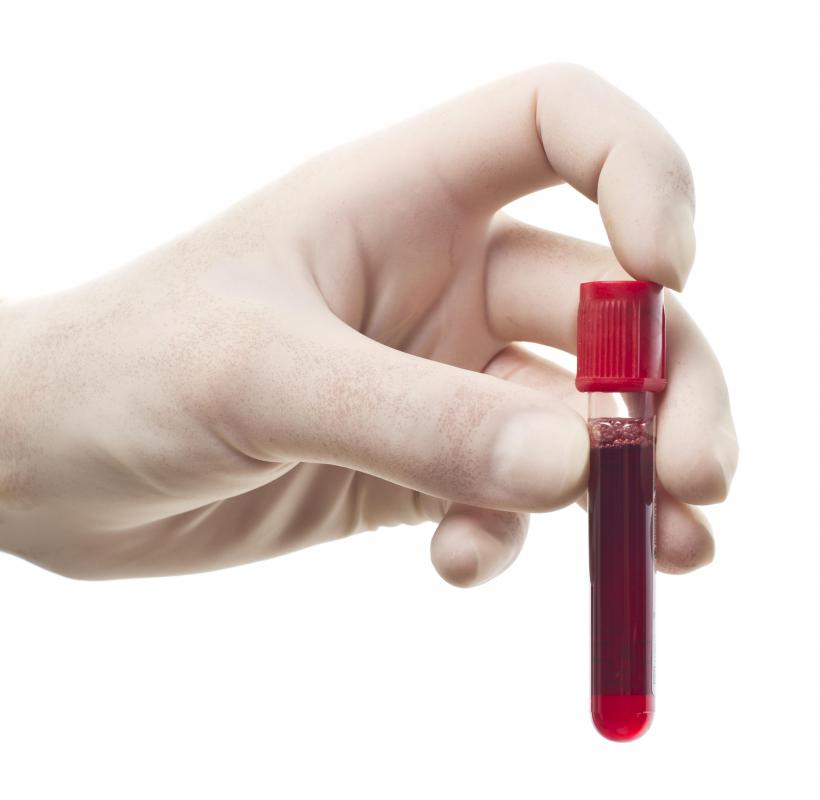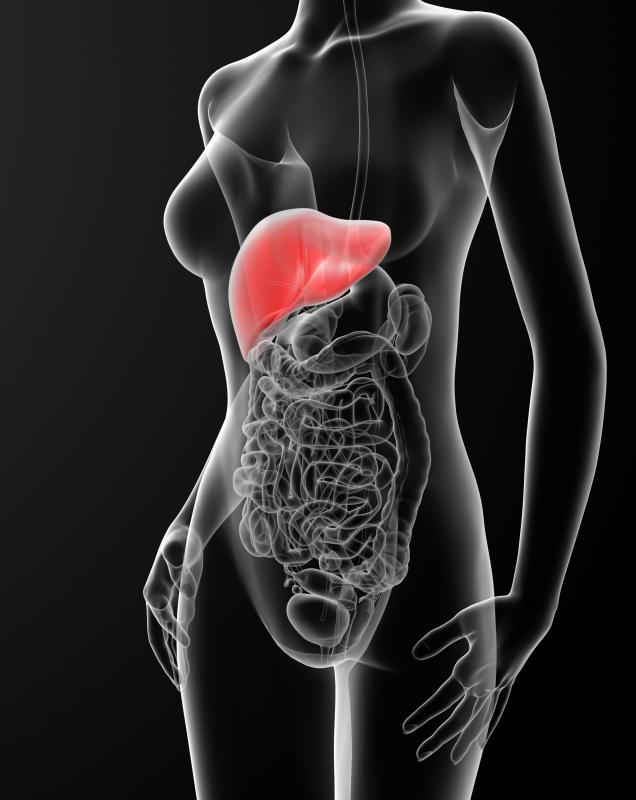At TheHealthBoard, we're committed to delivering accurate, trustworthy information. Our expert-authored content is rigorously fact-checked and sourced from credible authorities. Discover how we uphold the highest standards in providing you with reliable knowledge.
What are Blood Lipids?
A lipid can basically be defined as a substance that is insoluble in water but is soluble in alcohol or some other type of solvent. Blood lipids are lipids, or fats, in the bloodstream. Some commonly known blood lipids are cholesterol, cholesterol complexes, and triglycerides. These molecules may occur freely in the blood, although they are most often packaged and transported in protein complexes.
In general, ingested lipids from food and drink are digested in the small intestine and transported to the liver in large complexes of lipid and protein known as chylomicrons. The liver is essentially responsible for ensuring that all tissues receive enough lipids for proper functioning and for normalizing the concentration of blood lipids. In the liver, triglycerides and cholesterol are packaged into complexes of varying densities, or lipoproteins, and then released into the blood stream.

There are three commonly known lipoproteins. Very low-density lipoproteins (VLDLs) consist primarily of triglycerides but will eventually become low-density lipoproteins (LDLs). The main ingredient of LDLs is cholesterol, and high blood levels of LDL are associated with a higher risk of heart disease. High-density lipoproteins (HDLs) also consist of cholesterol but additionally contain a large amount of protein and appear to serve as scavengers by cleaning excess cholesterol from the blood. In contrast to LDLs, a high proportion of HDLs in the bloodstream is associated with a protective effect against the development of heart disease.

The lipid hypothesis was first developed in the 1850s to describe the connection between high levels of blood cholesterol and heart disease. This hypothesis is accepted as fact by many researchers and clinicians today who claim that years of scientific research have confirmed this association, but a strong minority disagrees with this mainstream view. Opponents of the lipid hypothesis argue that less than half of heart attack patients have high cholesterol levels, and many propose that inflammatory processes are more to blame for heart disease than blood lipid levels.

Due to the generally wide acceptance of the lipid hypothesis, it is often recommended that people over the age of 20 get a blood lipid profile. This profile measures LDL, HDL, and triglycerides, and is a simple blood test that should be drawn after a 12-hour fast. The fast ensures that lipids obtained from the diet have been cleared out of the blood stream.

Although blood lipids are usually portrayed in a negative light, they have many important functions in a healthy body. They are necessary for formation of cell membranes, and they are the body’s main form of energy storage. In addition, lipids are processed in the body to become essential hormones.
AS FEATURED ON:
AS FEATURED ON:

















Discussion Comments
Had a triple bypass done. Prior to that I have been on cholesterol tabs on and off for quiet a number of years. My doctor and cardiologist popped me back on a larger dose of cholesterol lowering dosage.
My life has been affected a lot from those medications, from memory loss to not being able to concentrate very well. Leg weakness and generally just feeling like crap and slow on my feet like an old man. I don't want to live being affected like that.
Then, on the other hand, I don't want to have another bypass done. I read lots of stuff that condemns cholesterol lowering drugs and claiming that cholesterol does not cause blockage to the arteries. Well? How I wonder my arteries got blocked. It has got me confused now.
I am upping my Omega 3 intake and the use of other more natural means to try and keep me healthier. What is right and what is wrong I don't know. Both sides claim to be correct. One pushing the medications and the other against the use of it.
I stopped using Vytorin and I have been on all the other ones too. They all have me feeling sick.
People who are concerned that they might have high cholesterol or blood pressure, or anything else relating to possibly elevated blood lipids, can go to their doctor for a blood lipid panel to get all of that looked at and checked out fairly easily.
Everyone needs some lipids in their blood, just as everyone needs some fats in their diets. In recent years people have become obsessed with fear when it comes to anything relating to cholesterol, fat, calories, or really anything in the diet. However, for the most part the body knows how much of these it is supposed to have and can control them itself.
Post your comments